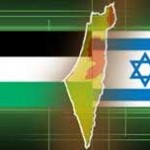Palestine: No Negotiations Before Halt to Israeli Settlements
 Saturday, January 30, 2010 at 7:37
Saturday, January 30, 2010 at 7:37  Palestinian President Mahmoud Abbas declared on Thursday that no proposal ignoring Jerusalem as the capital of Palestinians would be acceptable to Palestinians.
Palestinian President Mahmoud Abbas declared on Thursday that no proposal ignoring Jerusalem as the capital of Palestinians would be acceptable to Palestinians.Abbas added that there would be no peace negotiations with Israel as long as the construction in West Bank settlements and East Jerusalem continues:
If Israel says in the meeting that it will not accept the 1967 borders and that it is not prepared to discuss Jerusalem and the refugee situation, what is there to talk about?
If I enter negotiations with them and the building in East Jerusalem continues, Israel will be saying that Jerusalem is theirs. So why would I agree to negotiate while building in East Jerusalem continues?
Abbas concluded that he will accept Israel as a Jewish state only when West Jerusalem accepts the terms of Palestinians.
Palestinian Prime Minister Salam Fayyad said, in a separate declaration, that there was no agreement yet to resume talks with Israel. Responding to the latest US proposal for talks at a level below full-scale negotiations between leaders, Fayyad told Reuters:
We heard about low-level, mid-level, high-level (talks). I don't think there is anything yet that has been crystallised in terms of going forward.
However, Fayyad not close the door on talks: "We Palestinians stand to lose the most from a stalled peace process, but we would still like to see the process resumed in a way that would give us confidence that it can actually deliver what it should be able to deliver."




